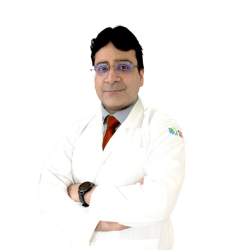Best Doctors for Nystagmus in Lucknow
Nystagmus is a visual disorder characterised by involuntary, rapid, and repetitive movements of the eyes. It can manifest as congenital, present from birth, or acquired later in life. The congenital form often occurs in infants between 6 weeks and 3 months of age and is often inherited from parents. On the other hand, the acquired form is more common in adults and can be triggered by serious medical conditions such as neurological disorders, drug/alcohol misuse, or traumatic head injuries.
Lucknow is renowned for its advanced healthcare facilities, with Apollo Hospitals standing out for offering some of the best doctors specialising in Nystagmus treatment and other specialised services in the city. Nystagmus cases, both congenital and acquired, are common in Lucknow, emphasising the importance of accessible and competent doctors treating Nystagmus for residents.









 Call Now
Call Now



